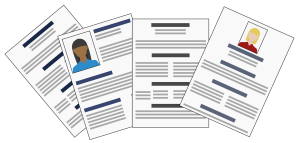Crafting an Effective Resume for Nursing: Your Gateway to a Fulfilling Career
A well-crafted resume is a critical tool for any nursing professional seeking new opportunities or advancing their career. As a nurse, your resume serves as the first impression potential employers have of your skills, qualifications, and experience. Therefore, it is essential to create a resume that effectively showcases your abilities and highlights your suitability for the role. In this article, we will explore the best practices for writing a resume specifically tailored for nursing professionals.
Start with a Strong Summary or Objective Statement
Begin your nursing resume with a compelling summary or objective statement that succinctly captures your experience, qualifications, and career goals. Emphasize your areas of expertise, relevant certifications, and any specialized skills you possess. This section should be concise yet impactful, enticing employers to read further.
Highlight Your Educational Background and Licensure
In the nursing field, education and licensure are paramount. Clearly outline your educational qualifications, including your nursing degree, any relevant certifications, and specialized training. Mention your licensure information, such as your Registered Nurse (RN) or Licensed Practical Nurse (LPN) credentials, and ensure that they are up-to-date and prominently displayed on your resume.
Showcase Clinical Experience and Skills
The heart of a nursing resume lies in showcasing your clinical experience and skills. Create a dedicated section that highlights your work history, starting with your most recent role. Include the name of the institution, the position held, and the dates of employment. Describe your key responsibilities and achievements in each role, emphasizing your specific contributions and notable patient outcomes.
Additionally, emphasize your nursing skills and competencies relevant to the position you are applying for. Include skills such as patient assessment, medication administration, wound care, and proficiency with electronic medical records. Highlight any specialized skills or certifications, such as Advanced Cardiac Life Support (ACLS) or Pediatric Advanced Life Support (PALS).
Demonstrate Effective Communication and Interpersonal Skills
Nursing is a highly collaborative profession that requires excellent communication and interpersonal skills. Showcase your ability to interact effectively with patients, families, and multidisciplinary healthcare teams. Highlight your experience in providing patient education, facilitating patient-centered care, and resolving conflicts. These skills are essential in demonstrating your capacity to provide compassionate and high-quality nursing care.
Include Relevant Professional Memberships and Achievements
Nursing associations and professional memberships demonstrate your commitment to ongoing learning and development within the field. Include any relevant memberships, such as the American Nurses Association (ANA) or specialty-specific organizations. Additionally, mention any awards or recognitions you have received for your contributions to nursing practice or patient care. These achievements serve as powerful indicators of your dedication and expertise.
Customize Your Resume for Each Application
Tailor your resume to the specific job you are applying for. Carefully review the job description and identify the key skills and qualifications sought by the employer. Align your resume accordingly, emphasizing the experiences and abilities that directly match their requirements. This customization demonstrates your genuine interest in the position and increases the likelihood of your resume standing out from the competition.
Conclusion: Writing an effective resume for a nursing position requires a thoughtful and targeted approach. By incorporating the best practices outlined in this article, you can create a resume that effectively showcases your qualifications, experience, and skills as a nursing professional. Remember to present your education, licensure, clinical experience, and relevant skills in a clear and concise manner, while highlighting your communication and interpersonal abilities. With a well-crafted resume in hand, you will be on your way to securing the nursing position that aligns with your career goals and aspirations.





